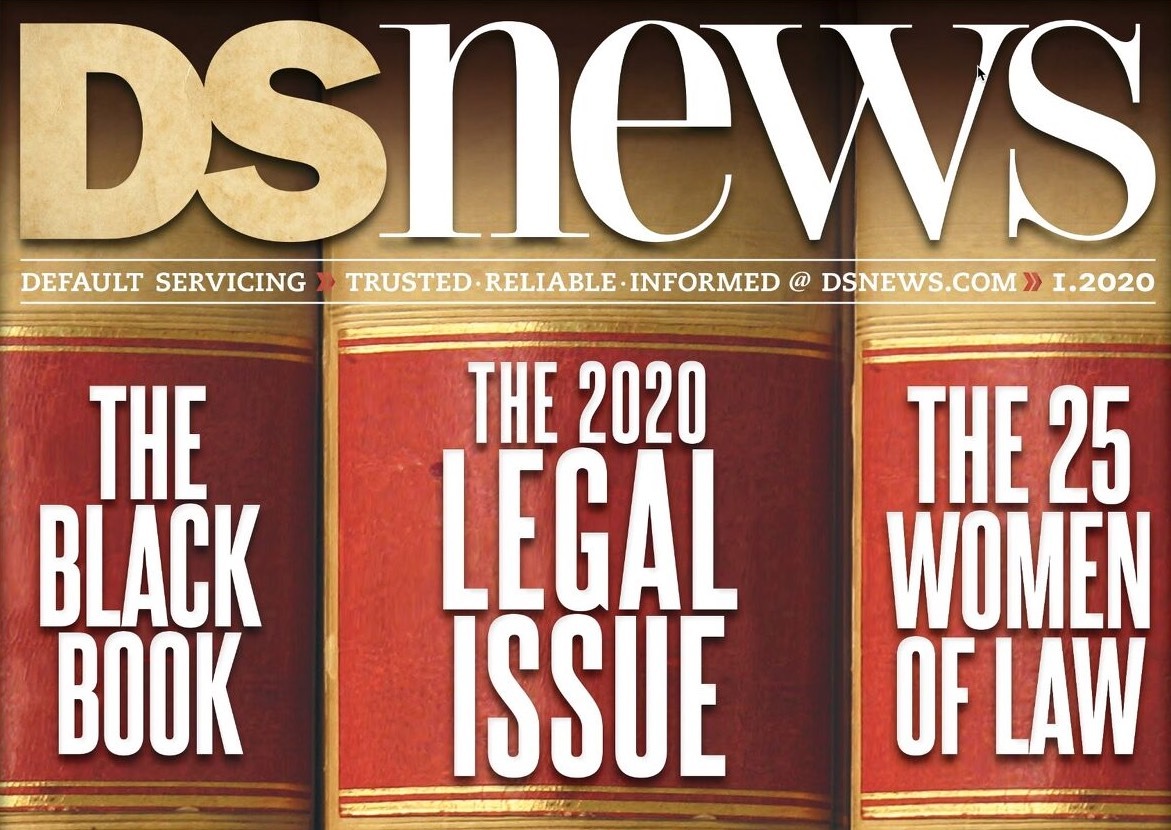McMichael Taylor Gray, LLC Managing Attorney, Mark A. Baker and Associate Attorney Anne Marie Throne, co-authored an article about Chapter 13 Anti-modification in DS News January 2020 legal industry update.
Residential mortgages receive preferred treatment in Chapter 13 cases—the “anti-modification” provisions of the Bankruptcy Code generally prevent a debtor from modifying claims secured only by the debtor’s residence, even when the property is “underwater.” But what if the residential mortgage obligation matures prior to or during the pendency of the case and the value of the property is less than the debt? The Fourth Circuit Court of Appeals (Maryland, Virginia, West Virginia, North Carolina, and South Carolina) has recently aligned itself with the Eleventh (Alabama, Georgia, and Florida) and Sixth (Kentucky, Michigan, Ohio, and Tennessee) Circuits to clearly establish that these unfortunate lienholders have drawn the short end of the stick. Indeed, all circuit courts that have considered the issue are in agreement.
The anti-modification prohibition of Chapter 13 in Section 1322(b)(2) of the Code provides that “subject to subsections (a) and (c) of this section, the plan may modify the rights of holders of secured claims, other than a claim secured only by a security interest in real property that is the debtor’s principal residence. This Code section seems to be a straightforward prohibition against residential mortgage modification. Thus, for “long-term” mortgage debt—a secured obligation which by its terms extends beyond the duration of the case—the debtor may not modify the loan and must continue making ongoing mortgage payment and cure any pre-petition arrearage owed on the loan during the pendency of the case. In addition, undersecured long-term junior liens secured only the debtor’s principal residence must be cured and paid through the bankruptcy, provided there is any equity above the first lien.
However, there is an anti-modification exception found in Section 1322(c)(2): “notwithstanding subsection (b)(2) in a case in which the last payment on the original payment schedule for a claim secured only by a security interest in real property that is the debtor’s principal residence is due before the date on which the final payment under the plan is due, the plan may provide for the payment of the claim as modified pursuant to section 1325(a) (5) of this title.” Section 1325(a)(5) then provides that “the court shall confirm a plan if (5) with respect to each allowed secured claim provided for by the plan (ii) the value, as of the effective date of the plan, of property to be distributed under the plan on account of such claim is not less than the allowed amount of such claim.”
Courts have struggled with the apparent inconsistency between these two interrelated Code sections. Can the debtor only modify the payment terms, as suggested by Section 1322(c)(2)? Or can the debt be crammed down to value, as provided in Section 1325(a)(5)? The Fourth Circuit Court of Appeals has joined the Sixth and Eleventh Circuits to hold that a lien secured only by the debtor’s principal residence that matures before the final payment under the plan, no matter the lien position, may be crammed down and bifurcated into secured and unsecured claims.
In Hulbert v. Black, decided May 24, 2019, the Fourth Circuit Court of Appeals considered whether only the monthly payment amount could be modified, or whether the debt could be crammed down. When the debtor filed Chapter 13 in April 2016, the residential mortgage loan had already matured with a total balance due of about $181,000; however, the debtor valued the property at only $40,000. The plan proposed to bifurcate the lien into secured and unsecured portions. The Fourth Circuit held that Section 1322(c)(2) is best read to authorize modification of claims, not just payments, and concluded that a chapter 13 plan may bifurcate a short-term claim based on an undersecured homestead mortgage into secured and unsecured components and cram down the undersecured component to the value of the property. Hulbert v. Black, 925 F.3d 154 (4th Cir. 2019).
The Eleventh Circuit has also concluded that the plain language of Section 1322(c) (2) permits the modification of claims (through bifurcation and cramdown) secured by those short-term home mortgages that mature prior to the completion of a Chapter 13 plan. Am. Gen. Fin., Inc. v. Paschen (In re Paschen), 296 F.3d 1203 (11th Cir. 2002). Similarly, the Sixth Circuit has held that Section 1322(c)(2) creates a narrow exception to the protection from modification in §1322(b)(2) that includes the power to bifurcate undersecured claims that matured or will mature, consistent with Section 1325(a)(5). First Union Mortg. Corp. v. Eubanks (In re Eubanks), 219 B.R. 468 (6th Cir. BAP 1998).
Thus, in the Fourth Circuit, as in the Sixth and Eleventh, a short-term undersecured lien secured only by the debtor’s principal residence may be bifurcated into secured and unsecured claims. Effective property valuation, perhaps by expert testimony, then becomes the key to maximizing the creditor’s recovery.
Mark A. Baker is the Managing Attorney in Alabama & Tennessee for McMichael Taylor Gray, LLC (MTG). He has spent over 30 years representing lenders and servicers in default services, including foreclosure, bankruptcy, evictions, and debt collection. Prior to joining MTG, Baker was the Owner of Mark A. Baker Law, LLC, ( Tallahassee, Florida) and the Managing Partner at Johnson & Freedman, LLC (Atlanta, Georgia). Mark received his B.A., University of Alabama and received his J.D. from the Cumberland School of Law.
Anne Marie Throneis an Associate Attorney at McMichael Taylor Gray, LLC. Her focus is on Tennessee Bankruptcy. Prior to joining MTG, she worked at Podis & Podis as Debtor’s Counsel for Bankruptcy cases. Throne is a graduate of East Tennessee State University, where she received her Bachelor’s Degree in business administration. She received her Juris Doctor degree from Belmont University College of Law.






